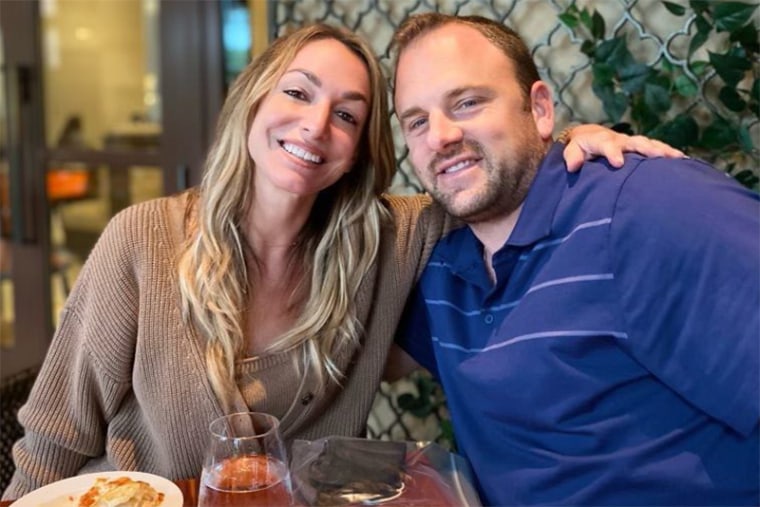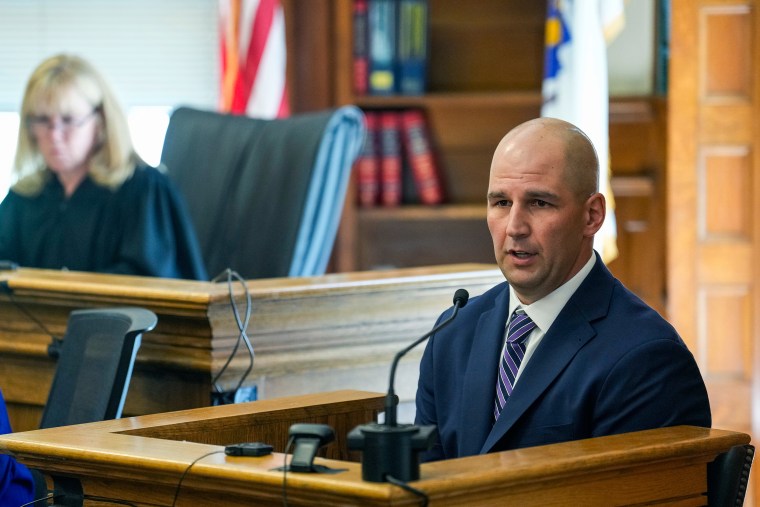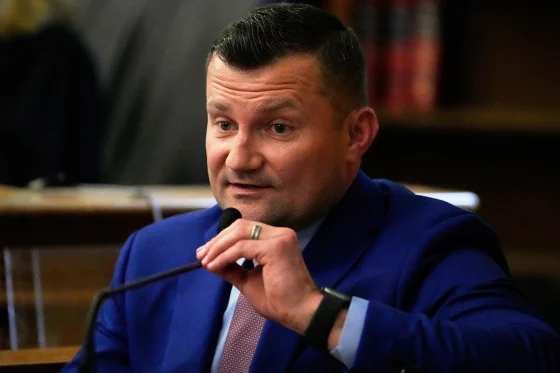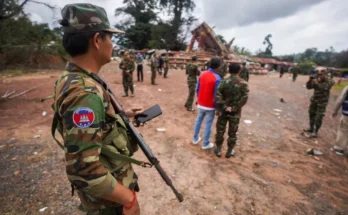The conduct of a former Massachusetts state trooper who was fired over his handling of the Karen Read murder investigation took centerstage at her retrial this week as defense lawyers spent hours grilling the ex-officer’s supervisor.
Massachusetts State Police Sgt. Yuri Bukhenik acknowledged that he was also disciplined over misconduct allegations linked to Michael Proctor, the case agent who managed the investigation into the death of Boston police officer John O’Keefe. But the supervisor testified that the former trooper handled the probe with “honor and integrity.”
“I believe human beings all have biases,” Bukhenik said in a courtroom southeast of Boston. “Especially in this case, they did not affect the outcome of the investigation.”
Proctor, who was fired after Read’s defense team raised allegations of misconduct at her widely watched first trial, has not testified at her retrial. It is not clear if he will.
Read, 45, is charged with second-degree murder, motor vehicle manslaughter while driving under the influence and leaving the scene of a collision causing death.
The first trial, which spanned nine weeks and five days of jury deliberations, ended when the panel could not reach a unanimous verdict. This week marked the third in her retrial.
Prosecutors have alleged that Read was furious over her deteriorating relationship when she drunkenly backed her Lexus SUV into O’Keefe, her boyfriend of two years, and left him for dead outside the suburban home of a now-retired Boston police sergeant, Brian Albert.
O’Keefe, 46, was found unresponsive in Albert’s yard shortly after 6 a.m. Jan. 29, 2022. He was later pronounced dead. The medical examiner attributed his cause of death to hypothermia and blunt force trauma to the head.

Read has asserted her innocence. Her lawyers have claimed that she is the victim of a conspiracy — O’Keefe was likely beaten inside Albert’s home, bitten by the family’s German Shepherd and dragged outside, they have said — and a cover-up that sought to frame her in his death.
The defense lawyers have accused Proctor of manipulating evidence and conducting a biased investigation. He was dishonorably discharged in March after a review by state police officials found that he violated agency rules when he sent derogatory messages about Read to friends, family and others, and when he shared sensitive and confidential details about the case with non-law enforcement personnel.
At trial, Proctor acknowledged that his comments were “unprofessional” and “dehumanized” Read, but he said they did not affect the integrity of the investigation into O’Keefe’s death. Proctor has not commented on his termination, but his family said the decision to fire him “unfairly exploits and scapegoats one of their own, a trooper with a 12-year unblemished record.”

Bukhenik was among those who Proctor texted. While searching Read’s phone seven months after O’Keefe’s death, Proctor texted a group thread about one of Read’s lawyers, David Yannetti, and refered to Read with offensive language and said: “No nudes so far.”
In other messages that did not include Bukhenik, Proctor said he hoped Read died by suicide and he made disparaging comments about her medical condition. Read was diagnosed with Chron’s disease.
Bukhenik testified that he was working on an airport traffic detail when the message arrived on his Apple watch. Though Bukhenik responded with a thumbs-up emoji, he said, he did not look at the messages at the time.
Bukhenik was later disciplined over the accuracy of Proctor’s performance evaluation, he testified, and for failing to adequately supervise him. He lost five vacation days, he said, and remains a homicide investigator with the Massachusetts State Police.
Under questioning from defense lawyer Alan Jackson, Bukhenik said that while Proctor managed the investigation, he did not believe the former trooper played a major role because he was only one of several troopers assigned to the case and was not responsible for 51 percent or more of the work.
Asked if he believed Proctor’s involvement in the case tainted the investigation, Bukhenik said he did not.



